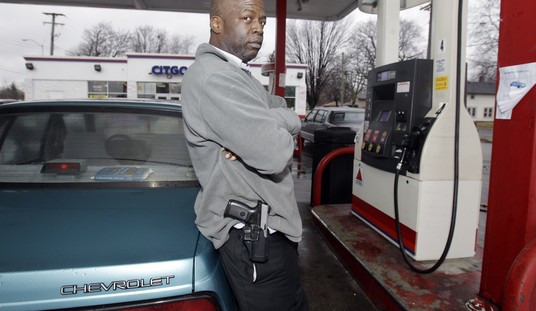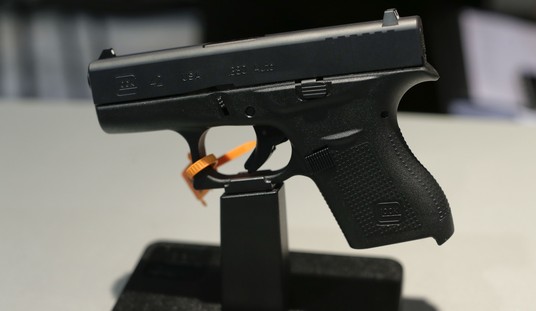The shooter in Sutherland Springs wasn’t just a disease, he was a symptom. He was a symptom of several things, to be honest, and not just a symptom of our failing mental health system. One thing, in particular, was that he was a symptom of a failing background check system that needs serious reform if it’s going to be remotely useful.
After all, it seems that individual isn’t the only one who has managed to skate by despite relevant information not being input into the NICS.
The FBI’s background-check system is missing millions of records of criminal convictions, mental illness diagnoses and other flags that would keep guns out of potentially dangerous hands, a gap that contributed to the shooting deaths of 26 people in a Texas church this week.
Experts who study the data say government agencies responsible for maintaining such records have long failed to forward them into federal databases used for gun background checks – systemic breakdowns that have lingered for decades as officials decided they were too costly and time-consuming to fix.
As the shooting at a Texas church on Sunday showed, what the FBI doesn’t know can get people killed. In that case, the gunman had been convicted at a court-martial of charges stemming from a domestic violence case. Officials say the Air Force never notified the FBI of his conviction, so when he purchased weapons at a retail store, he cleared the background check.
The FBI said it doesn’t know the scope of the problem, but the National Rifle Association says about 7 million records are absent from the system, based on a 2013 report by the nonprofit National Consortium for Justice Information and Statistics. That report determined that “at least 25% of felony convictions . . . are not available” to the National Instant Criminal Background Check System maintained by the FBI.
Experts who study the data say that estimate can be misleading, because felons often have multiple convictions, so if one is missed, others may still alert authorities to individuals who cannot legally buy a gun.
Note how others “may” still alert authorities. May.
Um…we’re talking about a background check system here that is supposed to make sure felons don’t get guns. Is “may” good enough? It sure didn’t stop the Sutherland Springs killer from buying his guns. How many more have been missed? How many other felons are walking around with guns purchased from licensed gun dealers where everything was done correctly on his end, but the relevant information never inputted?
I’m sorry, but this is unacceptable.
At this very moment, we have a bill before the United States Senate that seeks to limit our right to keep and bear arms because of the actions of a maniac, but as much as a quarter of felony convictions aren’t added to the system? And that’s not the end of it, either.
A large number of people convicted of misdemeanor domestic violence – who also are prohibited from buying guns – are absent from the FBI database as well, particularly in states that don’t require fingerprints for such convictions, according to people involved in the work.
…
Others who work with gun background-check data said the gaps are clear and have been known for years. Besides felonies and misdemeanor domestic violence convictions, the FBI also misses an untold number of drug addicts, because there is no good mechanism for probation or parole services agencies to share that type of data with the bureau.
That lack of visibility also proved deadly when white supremacist Dylann Roof purchased a gun and killed nine worshipers at a historic black church in Charleston, South Carolina, in 2015. The FBI later concluded he shouldn’t have been able to buy the weapon because he had recently confessed to drug possession. That confession was not entered into the background-check database, and Roof was able to buy a gun two months before the attack.
In other words, there’s plenty that never makes it into the system.
This isn’t a new problem, either. Back in 2007, the killer in the Virginia Tech massacre was also someone who shouldn’t have been eligible to purchase a gun due to having been involuntarily admitted to a mental health facility. The relevant information there wasn’t input either and as a result, the killer was able to murder 32 innocent people.
That means that over ten years, almost all under the anti-gun Obama administration, there has been no meaningful effort was undertaken to resolve this issue. Instead, we get assault weapon bans and calls for universal background checks, but what good would that do? If the background system is screwed, then just what in the hell good would universal background checks do?
Nothing.
If anti-gun activists were serious about anything at all on the topic, this should be where they start. Fix the system. Make it work as advertised, then let’s see how things go from there. As it stands, there are several mass killings that likely wouldn’t have happened–or wouldn’t have involved a gun, at the very least–if the system had worked, so let’s start there, shall we?








Join the conversation as a VIP Member